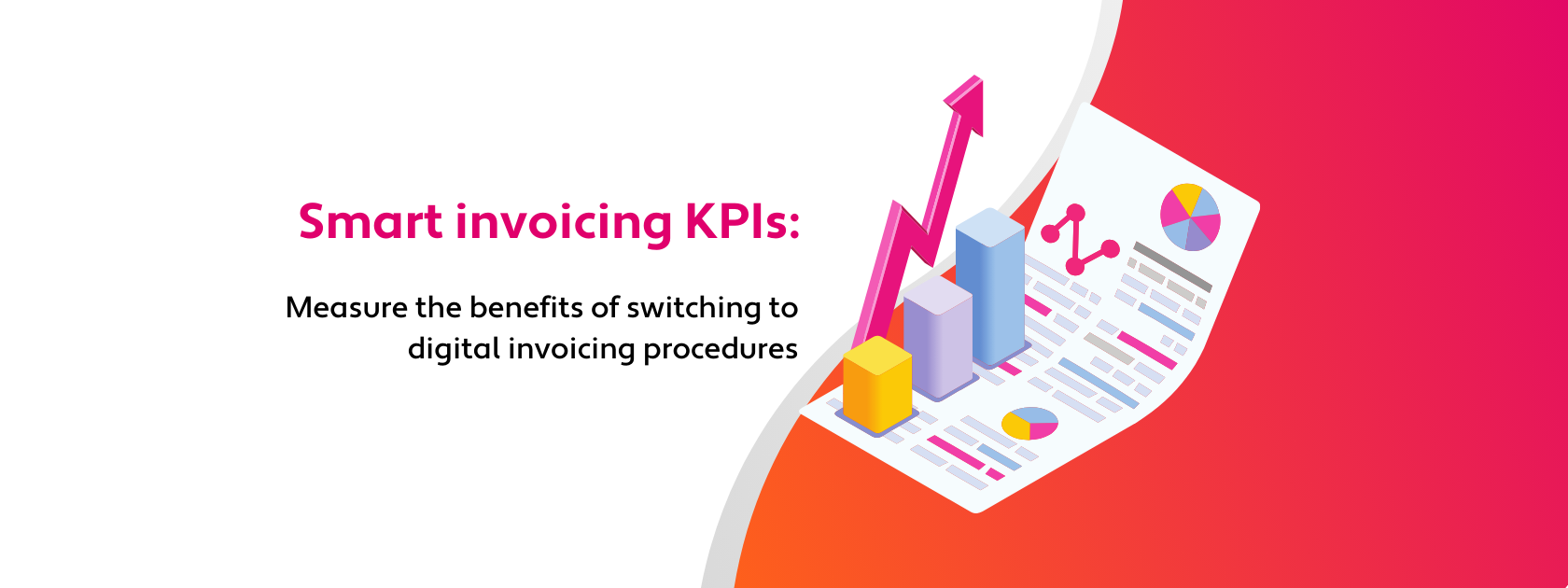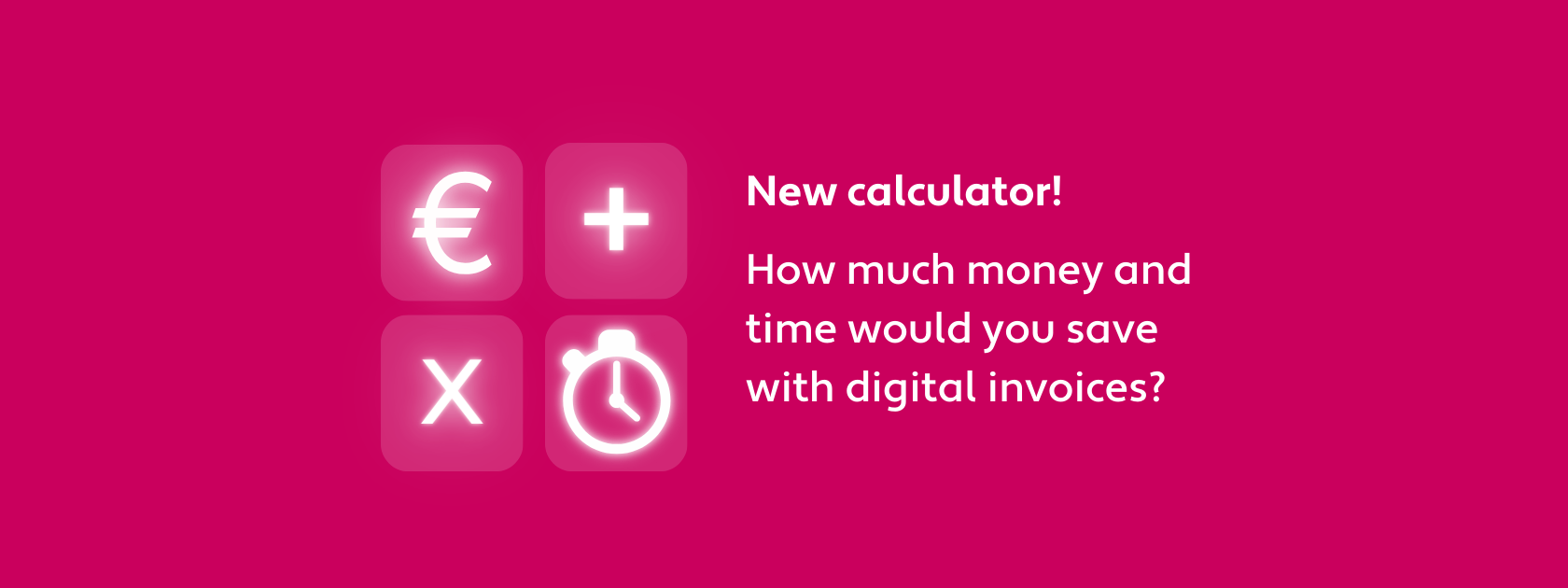
In today’s rapidly changing business environment, businesses of various sizes are constantly looking for ways of streamlining operations and increasing productivity. To optimise processes, the first step is to carefully assess the current situation, identify the main problems, determine which tasks are the most time-consuming and which parts of the process need to be transformed.
When repetitive, manual tasks, like entering and correcting data are taking up the valuable time of your highly-skilled staff, digitalization may be the best approach to optimise your processes. It is a powerful tool that is becoming increasingly important across many areas, including finance and accounting. For example, invoice digitalisation involves the conversion of paper and pdf invoices into a more efficient digital format for effective management and processing. In this article, we will look at the numerous advantages that invoice digitisation can have.
When it comes to digitizing and optimizing your processes, there’s no need to reinvent the wheel – rather learn from the experience of others.
For example, the Lithuanian company Megameta MB faced the problem of duplicated purchase invoices arriving unnoticed in mailboxes and being paid twice. This was partly due to manual data entry, which is usually time-consuming and often error-prone. So how did the company solve this problem? Linas Steponavičius , Managing Director of Megameta MB, says that the decision to switch to a smart invoice management and to digitize the incoming PDF invoices solved a number of problems: “In the past, suppliers used to send the same invoice several times, and we didn’t always notice this, so sometimes we would end up paying the same invoice several times. Subsequently, there was a lot of hassle with getting refunds or covering overpayments. With the switch to smart invoice management, digitised invoices are imported directly into our accounting software, eliminating the need for manual data entry and minimising the chances of errors and duplicates.
The tool they have started using is Finbite, an all-in-one smart invoice management solution that ensures 99% data quality and accuracy through OCR (Optical Character Recognition) and human verification. Invoices are sent straight to digitalization and you can concentrate on high-value tasks and forget about manual data entry. The documents are not only digitised, but also made ready for digital archiving and other automations using predefined rules and templates. In addition, digitised invoices leave a digital footprint that can be easily audited. This helps to ensure compliance with legal requirements and internal policies. In the case of audits, having a clear and easily accessible digital record of all transactions can save considerable time and effort.
Digitised electronic invoices help to solve another problem often faced by companies – the long and inefficient process of confirming purchase invoices. In order to reduce invoice fraud and increase transparency, invoices must be approved before payment. This used to be done by physical signature, by adding notes on a paper document or by email, which could take days or even weeks. Finbite’s invoice solution can be integrated into existing Enterprise Resource Planning (ERP) or accounting systems, and an automated confirmation process ensures that only approved invoices reach the accounting software. Automation also significantly speeds up the approval process, making it easy for those responsible to view and approve invoices from anywhere on their computer or smartphone. For example, JCDecaux, a global leader in outdoor advertising, values efficient time management and responsiveness in its daily operations. Audrė BUČINSKIENĖ, Chief Financial Officer of JCDecaux, says that the automated process saves the company time by eliminating the need to manually assign invoices to the employees for approval – “We use both automated invoice approval templates and automated accounting templates for most of our purchase invoices. This saves time as employees are conveniently notified of the incoming invoices they are linked to.”
Another problem that Megameta MB dealt with was the archiving of invoices. Printing, organising, forwarding and archiving invoices should not be in the job description of an educated accountant of the 21st century. “Our accounting is remote – we no longer print invoices, we don’t need to archive them in paper form. We have outsourced this to Finbite”, said the CEO of Megameta MB. The switch to digital invoice management significantly reduces the costs related to paper, printing, handling and storage. In addition, the reduced administrative burden of manual invoice handling allows staff to focus on higher value assignments. This not only increases productivity, but can also lead to cost reductions in the long run. All digitised invoices are already sorted, easy to find using search filters and stored securely in an electronic archive where they can be accessed at any time.
Živilė Penkauskaitė, Chief Accountant at UAB DAT LT, a company that operates scheduled and charter flights, uses Finbite solutions on a daily basis to speed up the process of managing purchase invoices and to save time on invoice archiving and document retrieval. In her experience, Finbite has reduced manual work, avoided human errors and increased staff productivity.
But how to implement new solutions into processes that have been in place for many years?
As the example of UAB DAT LT shows, it is possible to start on a smaller scale and continue to grow. “The implementation process was very smooth and fast. Since Finbite’s product met our expectations, we decided to roll it out across the other companies in our group”, said Živilė.
Megameta’s experience also shows that the implementation was seamless and straightforward – a mailbox for receiving PDF invoices was created, the accounting software integrated with an API, and the digitally confirmed invoices are automatically transferred to the accounting system. “We have saved and continue to save a lot of precious time – both on invoice confirmation and automatic data entry, and we avoid human errors – which used to take extra time to correct,” said Linas, after just a few months with the new process. Megameta recommends that you try it immediately – “It saves you and your colleagues time. We have been looking for this solution for some time, as our customers in Europe have been using these digitisation technologies for some time – unfortunately Lithuanian service providers do not offer this service – so it took a while to find Finbite.”
The benefits of digitising invoices for businesses are obvious and substantial. By using technology to automate and simplify the invoicing process, businesses of all sizes can increase efficiency, reduce costs and gain a competitive advantage in today’s dynamic business environment. Implementing this digital transformation not only improves efficiency, but also enables businesses to thrive in an increasingly interconnected and fast-paced world.
It’s time to transform your business processes and reach outstanding efficiency. Start using smart invoice management tools today and see the benefits of streamlined processes. Say goodbye to manual data entry, time-consuming paperwork and payment delays. With our advanced invoice digitisation, confirmation and archiving solutions, you’ll enjoy seamless invoice processing, enhanced accuracy and faster payment cycles. Don’t wait – take the first step towards a more efficient and productive future for your business.





